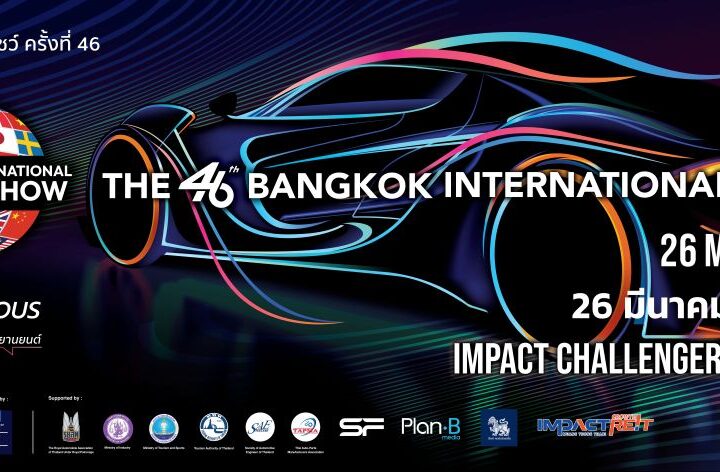
As the automotive industry looks ahead to future mobility, the Centre for Connected & Autonomous Automotive Research (CCAAR) has asserted that fresh thinking from new industry entrants and innovative academics will play a key role in making it happen.
On a global level, the automotive industry continues to face its most significant challenge yet; in establishing a new future offering which utilises novel technologies in electrification, automation and connectivity, in order to realise smarter, greener, connected vehicles.
In response, the UK government and major businesses continue to plough extensive investment and resource into major projects led by industry powerhouses in a bid to progress the technological breakthroughs required for the future mobility vision.
For CCAAR though, a unique automotive research centre developed in partnership between HORIBA MIRA and Coventry University, it is equally important for industry to embrace the next generation of technologically talented entrants – whose fresh thinking and disruptive theories will also play a huge role in fuelling future practice.
Siraj Ahmed Shaikh, Professor for Security Systems at CCAAR, comments: “The UK is home to some of the most accomplished automotive expertise in the world, both in the fields of industry and academia, who continue to spearhead the mobility revolution.
“However, it’s equally interesting to see the fundamental role that the next generation will play in this transition. By taking advantage of the unparalleled access to the network of researchers and industry experts involved in CCAAR, for example, many of our students working on PhDs in the field of automotive cybersecurity have come up with truly ground-breaking concepts which have not only been well received by the industry but will go a long way in forming the basis of future practice.”
Examples of pioneering academia from the many successful students at CCAAR include the proposed development of a systematic tool for testing in-cabin Bluetooth security and the application of Fuzz testing, a quality assurance technique used to discover coding errors and security loopholes in software, within vehicle systems to help evaluate and reduce vulnerabilities. It also includes the creation of a systematic security testing approach of Electrical Control Units (ECU) based on the success of an example case used in Over-The-Air software updates.
Siraj adds: “As we all know, there are many technological challenges that must be overcome before connected autonomous vehicles (CAVs) can be fully deployed on UK roads; from tackling the fundamental challenge of getting self-driving vehicles to effectively behave like a human, through to ensuring all according cybersecurity needs are met.
“As demonstrated with our ongoing work at CCAAR, the next generation, who are at the heart of this digital age, will be a major driving force in accomplishing this. Inherently accustomed to thinking through new technologies, their unique abilities to generate disruptive concepts and unique innovation will be crucial to realising the mobility revolution.”
About CCAAR
The Centre for Connected and Autonomous Automotive Research (CCAAR) is a unique automotive research centre dedicated to developing intelligent, connected vehicle technology.
Built on strong research and innovation links, CCAAR is a collaboration between HORIBA MIRA and Coventry University. It brings together experimentation and study to provide the underpinning knowledge and research that supports the rapid growth within the global intelligent mobility sector to address future transport needs.
Located on an existing site at the heart of MIRA Technology Park, CCAAR’s core objectives are to:
- Provide an environment to simulate, test and evaluate the security and safety of Connected Autonomous Vehicles (CAV)
- Undertake research to accelerate the development of new products and services in the CAV segment
- Produce a pipeline of talent to support growth of the CAV segment
CCAAR consists of an expert team made up of academic staff members and doctoral research students from Coventry University, alongside HORIBA MIRA’s engineering and test teams. Working together the Centre helps to nurture a pipeline of future talent to bridge the skills gaps in the industry.
Utilising HORIBA MIRA’s world-class facilities and technologies, CCAAR benefits from a range of information and communications technology and specialist laboratories. With in-house facilities combining the real and virtual worlds for CAV, the Centre utilises a suite of simulators that interact with ‘living laboratory’ environments.
It is at the heart of many industry leading research projects and specialist areas include vehicle connectivity, automotive cybersecurity, traffic simulation and modelling, human factors and design.
About HORIBA MIRA
HORIBA MIRA is a global provider of pioneering engineering consultancy, research, verification and validation services to the automotive, defence, aerospace and rail sectors. We work in close collaboration with vehicle manufacturers and suppliers around the world, providing comprehensive support ranging from individual product tests to turnkey multi-vehicle design, development and build programmes.
With over 70 years’ experience in developing some of the world’s most iconic vehicles, our engineers utilise the latest facilities and simulation tools to make vehicles and journeys safer, cleaner and smarter. Our suite of over 40 major facilities, 100km of specialised proving ground and wealth of engineering experience, combined with our expanding international presence, means we are confident that we can achieve our vision – that every journey in the world will be positively influenced by us.
About Coventry University
Coventry University offers one of the widest ranges of automotive research and teaching expertise of any university – covering the fields of design, engineering, business and media – and students from its courses have been graduating into leading roles in the automotive professions for over 30 years.
In the university’s Faculty of Engineering, Environment and Computing, students on automotive or motorsport engineering degrees can take advantage of state-of-the-art teaching facilities and links with industry to learn about and put into practice the principles behind vehicle and racing car design, development and manufacture.
Opened in 2017, the new National Transport Design Centre (NTDC) forms part of the university’s wider Institute for Future Transport and Cities – a research centre focusing on developments in technologies and mobility in the transport sector. The £7 million facility is equipped with cutting edge technology to support businesses, researchers and students to design future transport solutions.
















More Stories
Industry-standard switching & simulation systems from Pickering Interfaces on show at Space-Comm Expo
Bangkok International Motor Show 2025 – The Talk of Sensuous Automotive
SEPA and Bidgely Release Report on the Power of AI for Transportation Electrification